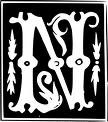It's not about watching the egg unbreak itself. It's about erasing/overriding the memory of having seen the egg break in order to observe the egg in another (unbroken) state.
(This one's for P, who broke her leg today.)
Over the years I have told you many stories. And I've waited and waited for somebody to get it. Because when it finally clicks, you'll realize that the applications go way beyond what I could tell you six posts into this story.
We have repeatedly discussed memory as the anchor of a particular outcome/observation - the thing which enables consistency in/of experience. I've discussed the idea of undoing an outcome that you don't like. I've vigorously tested these ideas, and am now waiting for someone else to do the same. Occasionally I grow impatient because I see possibilities that I need help in testing and exploring. For example...
Imagine a future where first responders to an serious injury are able to administer drugs that block the patient's encoding of the permanent/traumatic memory the incident. (Not necessarily that drug, but you get the picture.) Of course, blocking the patient's memories is not enough to ensure s/he is not seriously injured, but the patient's memory is the most likely (and probably the strongest) anchor to the injured state/outcome. First responders would also be trained in the kind of progressive information acquisition and framework selection that facilitates state selection, thereby giving them the best chance to choose the best possible outcome. They can also employ a deliberately-fuzzy encoding of their own observations - one that is more easily overridden if it presents information that conflicts with a desired outcome.
I've talked about the medical applications of this theory before, and I hope you'll think about this post the next time a skeptic whines about how 'prayer' has never helped an amputee regrow a limb. While I certainly don't claim that that is possible, I'll take any edge I can get on reducing the probability of a serious injury/illness. And I happen to think that the best time to exercise that edge is in the first observations relating to the injured state.
Wednesday, February 10, 2010
Subscribe to:
Post Comments (Atom)


No comments:
Post a Comment